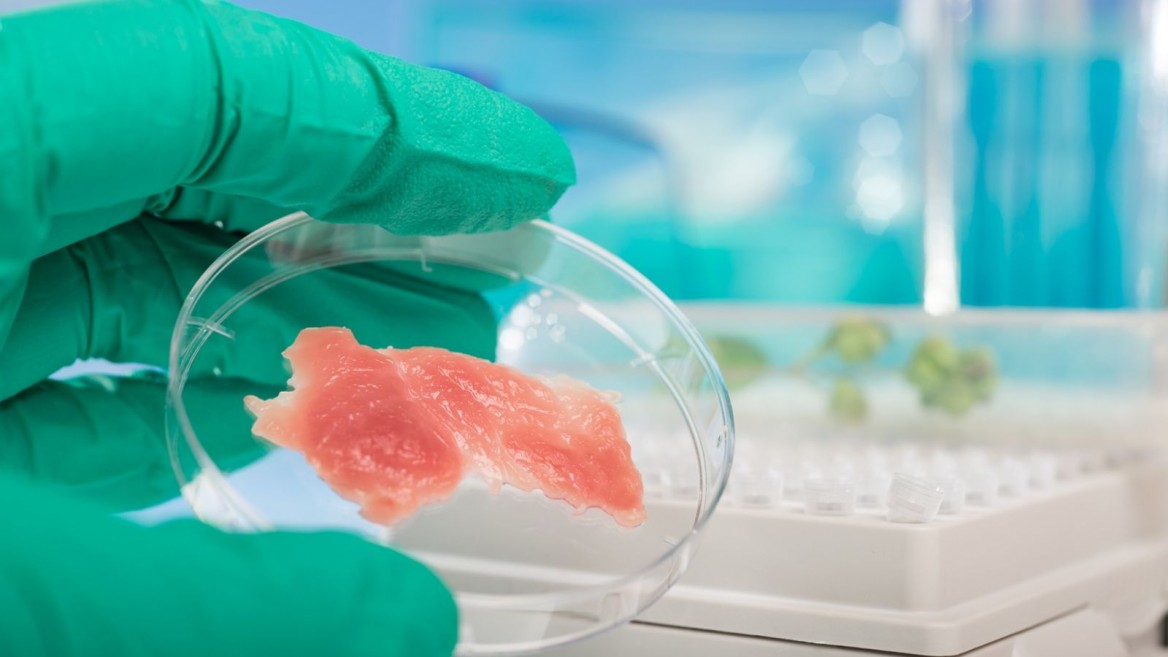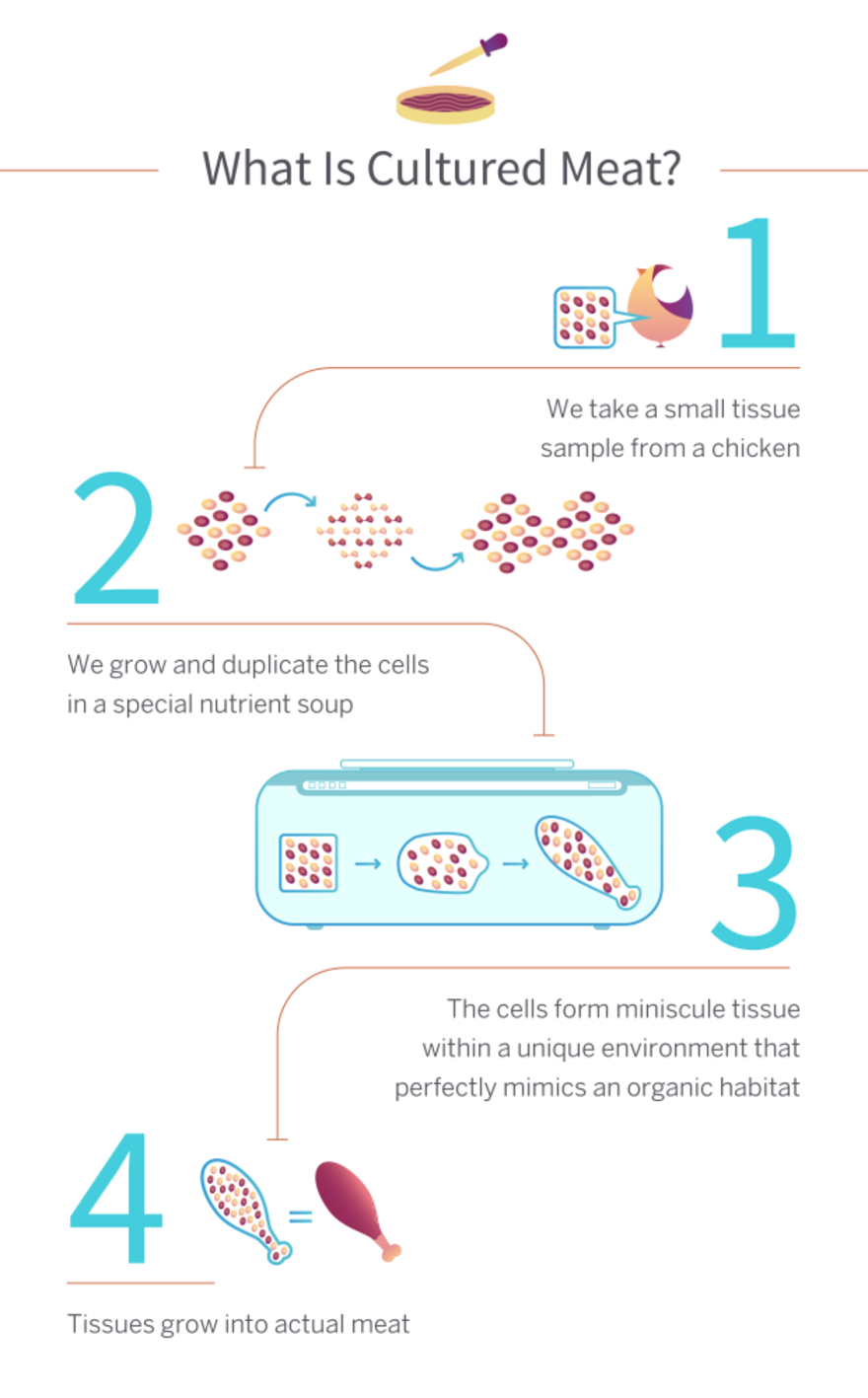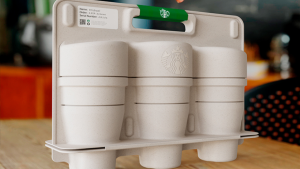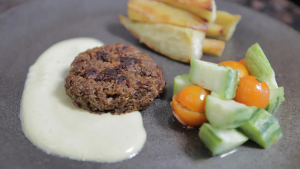
The meat industry has long been associated with adverse effects on the environment and cruel animal rearing and slaughtering practices. Supermeat is an Isreaili startup that hopes to end this by mass-producing real, clean meat without harming animals. Although there have already been strides made by other initiatives in this pursuit, Supermeat is the only of its kind to work on cultured chicken products for mass production, and is attempting a first by growing the tissue organically as one piece.
Though developed entirely inside of a laboratory, SuperMeat’s cultured meat is reportedly biologically indistinguishable from that obtained from slaughtering real live animals. It even claims to taste the same; a welcome respite from the blandness and unappetizing texture of many substitute meat products. Their current focus is on three kinds of chicken products: minced meat, chicken breasts, and liver.
But what exactly is cultured meat? Simply put, it is meat made from animal cells – but without the use of the animal themselves. By organizing isolated animal tissue cells obtained from relatively painless biopsies into miniscule tissues, and placing them in unique, incubated environments designed to perfectly mimic animal physiology, the tissue is able to organically grow into larger muscles – very similarly to how they develop in nature.

“I came to realise that this is unsustainable,” Supermeat co-founder Yaakov Nahmias told Geektime of traditional meat industry methods. “If I want my children to eat the same fried chicken that my grandma used to make, I need to develop groundbreaking technology that will fundamentally change meat production in the coming century.”
With mere days remaining in their Indiegogo campaign, Supermeat hopes to raise enough money to fund the development of a machine that would carry out the aforementioned process in a scalable manner. According to stats provided on their website, the finished product would have the potential to slow down global warming by using 99 per cent less land, 96 per cent less water and emitting 96 per cent less greenhouse gases than current industry methods.
SuperMeat plans to present their first prototype by January 2018 with their product launch planned for 2021. The initiative hopes its success will open the door to an affordable and sustainable source of human food, and ultimately help to end public health hazards.






